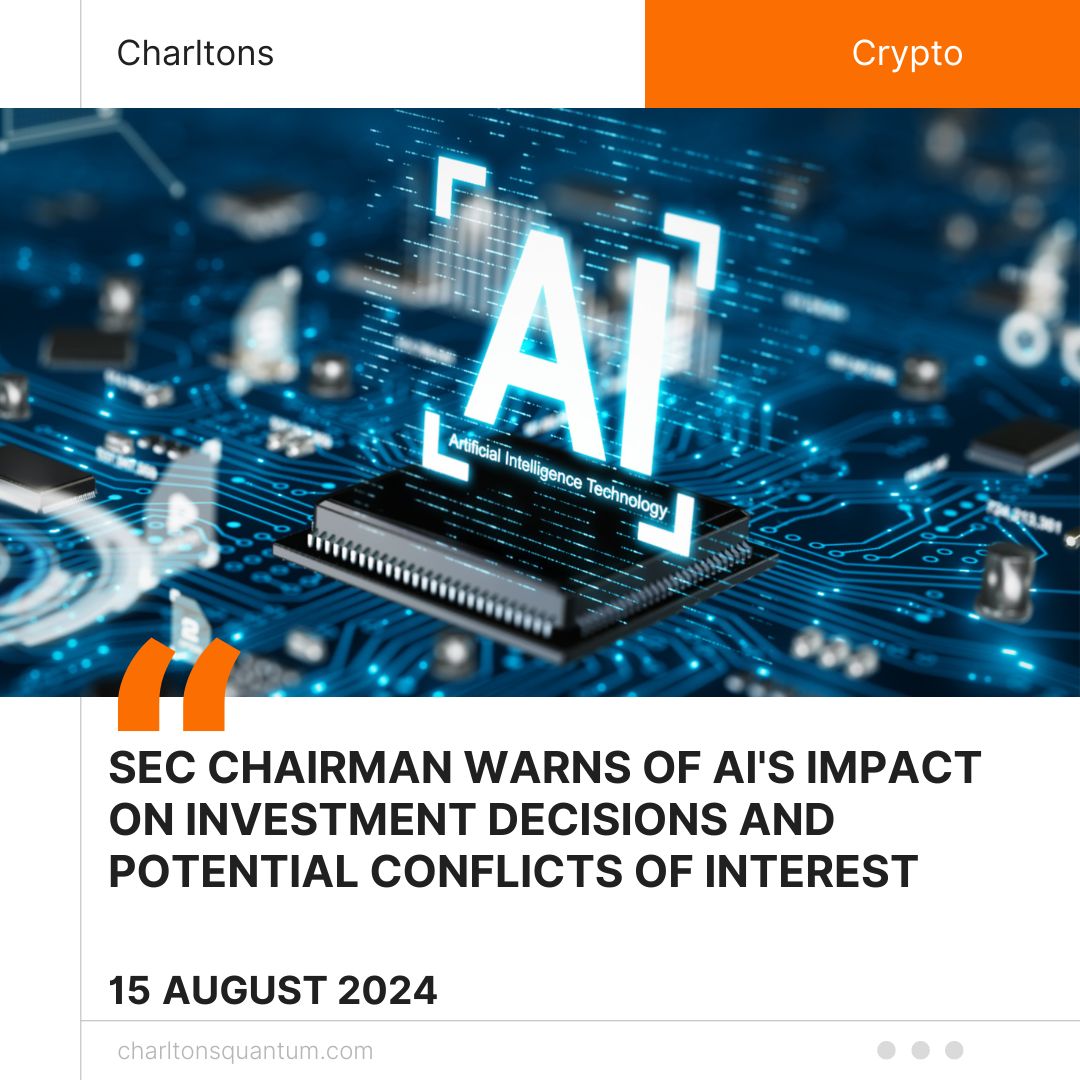
On 14 August, 2024, the Securities and Exchange Commission (SEC) Chairman Gary Gensler released a statement highlighting the growing influence of artificial intelligence (AI) in financial markets and the potential risks it poses to investors. With AI increasingly embedded in everyday digital experiences, from search algorithms to personalized marketing, the SEC’s attention has turned to its application in the financial sector, particularly in investment platforms and brokerage services.
The rise of AI has brought significant advancements in the ability to process vast amounts of data, recognize patterns, and make predictions. This technology allows companies to “narrowcast,” tailoring messages, pricing, and products to individual consumers with unprecedented precision. In the financial sector, this manifests in the use of Robo-advisors and brokerage applications that rely on AI algorithms to provide personalized investment recommendations and alerts.
However, as SEC Chairman Gary Gensler pointed out in a recent address, the same AI-driven systems that enhance user experience could also introduce new risks. These algorithms, designed to predict how individuals might respond to specific prompts or offers, could potentially be manipulated to serve the financial interests of the platforms rather than the investors. Gensler raised concerns about AI’s ability to detect subtle individual preferences, such as color choices or psychological triggers, which could be exploited to influence investment decisions in ways that might not align with an investor’s best interests.
In a humorous twist, the video of Chairman Gensler delivering his warning appeared almost AI crafted—some joked it might have been AI-tailored itself. The lighting, the color schemes, and even the pacing of his speech seemed almost eerily optimized for maximum engagement, as if an AI system had meticulously calculated how best to hold the audience’s attention. This stands on the very point Gensler was making: in a world where AI knows our preferences better than we do, the line between genuine human communication and algorithm-driven persuasion becomes increasingly blurred.
Drawing from a personal anecdote, Gensler illustrated how AI could tap into deeply ingrained preferences, such as his own aversion to the color green due to childhood experiences. He warned that AI systems, by optimizing for the platform’s revenue or profit motives, could prioritize the firm’s interests over those of the investor, leading to conflicts of interest. This, he cautioned, could result in investors making suboptimal financial decisions or even suffering financial harm.
The SEC is keenly aware of these potential conflicts and is actively working to address them. Gensler emphasized that regardless of whether financial advice is delivered by a human advisor or an AI-powered system, it must always serve the client’s best interests. To this end, the SEC has proposed new regulations aimed at mitigating these conflicts across various investor interactions, from Robo-advisors to traditional brokers.
The proposed rule, introduced last year, seeks to ensure that AI-driven financial platforms adhere to the same standards of transparency and fairness as their human counterparts. By addressing the evolving challenges posed by AI, the SEC aims to protect investors while fostering innovation in the financial industry.
As AI continues to make waves in the financial sector, its impact is also being keenly felt in the world of cryptocurrencies and digital assets. In a market that is already known for its volatility and rapid pace of change, the integration of AI-driven algorithms presents both opportunities and challenges. On one hand, AI can provide crypto traders with sophisticated tools for market analysis, sentiment detection, and predictive modeling, potentially giving them an edge in navigating the often unpredictable crypto markets. On the other hand, the very same technology could be leveraged by platforms and exchanges to subtly influence trading behavior, possibly exacerbating market swings or encouraging trades that benefit the platform over the trader.
As decentralized finance (DeFi) platforms and crypto exchanges increasingly rely on AI to optimize user interactions and trading strategies, the potential for conflicts of interest grows. Investors must remain vigilant, ensuring that the AI tools they use are aligned with their financial goals, rather than being manipulated to serve the interests of the platform.
In this rapidly evolving landscape, the SEC’s focus on AI’s role in financial markets could soon extend to the crypto world, where the stakes are high and the margins for error are thin. The same principles that apply to traditional investments—transparency, fairness, and the prioritization of investor interests—must be rigorously upheld in the digital asset space to ensure that innovation does not come at the expense of investor protection.
(Source: https://www.youtube.com/watch?v=mpAE230mrdU, https://www.sec.gov/newsroom/speeches-statements/gensler-transcript-artificial-intelligence-081324)





